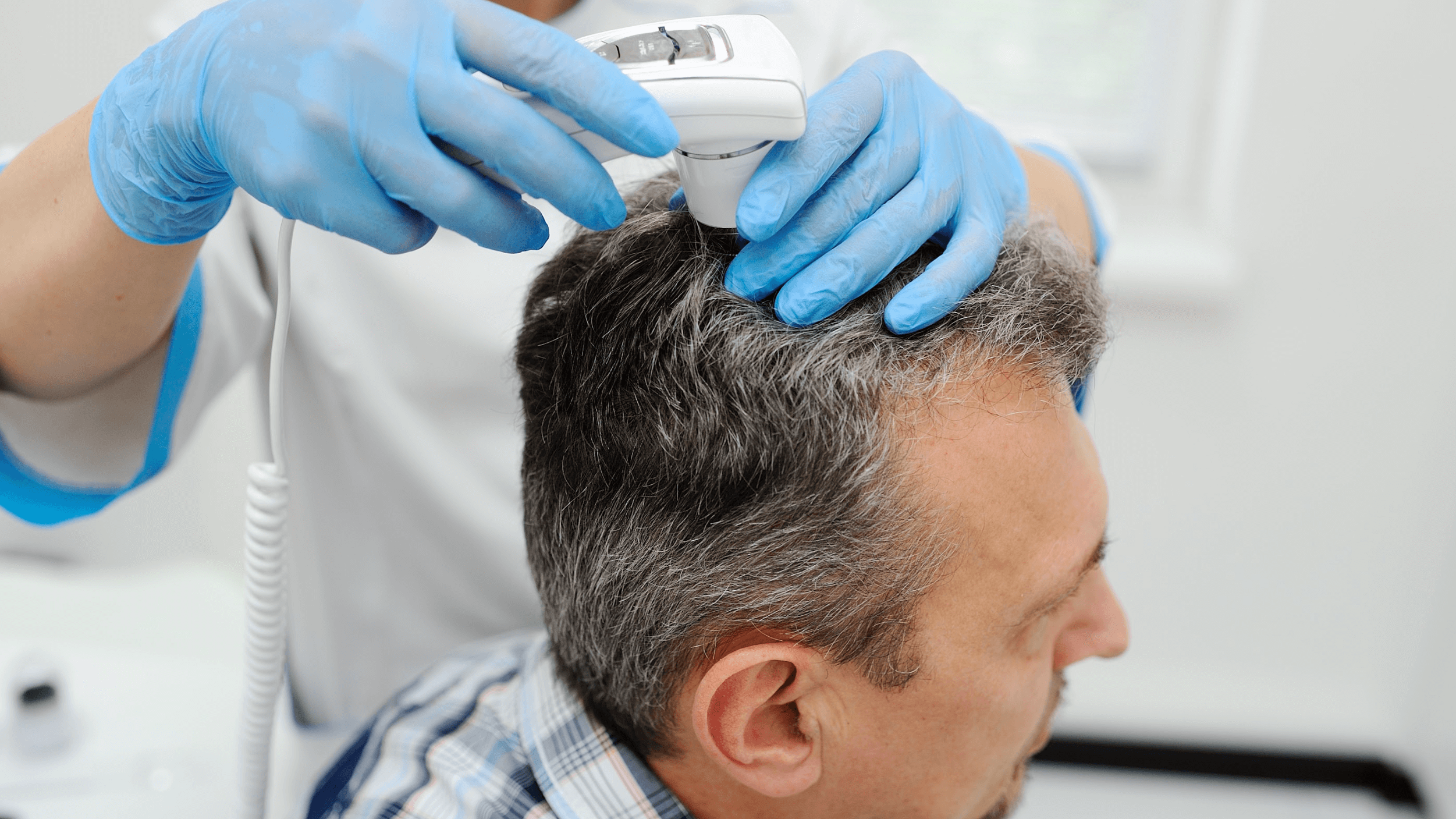Am I Losing My Hair Because of Genetics?
&srotate=0)
When individuals begin losing their hair, it can be a very upsetting experience. This is especially true in today's world where, for many, losing one's hair may feel like giving up part of their identity. Hair loss is an undesirable but potentially inevitable part of the aging process, influenced by genetics, hormones, and many other factors.
But with the latest scientific advances, we can slow hair loss and even potentially stimulate new growth. And our office in Stuart or Tequesta, FL, is fully equipped to help patients regain confidence and peace of mind, thanks to state-of-the-art technology and techniques. So, contact us today to get started.
Am I losing my hair because of genetics?
Pattern baldness may be surprisingly common, according to staggering statistics: more than 50 million men and 30 million women in the U.S. experience some form or degree of hair loss or thinning. This male-pattern or female-pattern baldness is also known as androgenic alopecia.
It is an inherited condition, although the exact details are still unclear due to the high number of genetic and environmental variables in each case. Androgenic alopecia is characterized by the follicles' increased susceptibility to testosterone and dihydrotestosterone (DHT), the male sex hormones responsible for the development of masculine physiological features.
Unfortunately, due to various factors, including genetics, these hormones can lead to hair thinning and loss. These hormones cause the follicles to gradually shrink and eventually die off, leading to hair loss in a specific pattern, generally beginning at the crown and the hairline, forming an "M" pattern.
What other factors may influence hair loss?
One mechanism is known as telogen effluvium. Unlike androgenic alopecia, this has different underlying causes, including trauma, stress, illness, malnutrition, extreme weight loss, stress, or certain medications, among other aspects.
The other difference between telogen effluvium and androgenic alopecia is that this condition can occur seemingly more rapidly. Fortunately, it may be thought of as the hair "sleeping" and can be more easily reversed.
Furthermore, another potential form of hair loss is known as alopecia areata. It is an autoimmune disorder in which the body's own agents cause damage to the follicles, effectively shutting them off and creating round bald spots.
Alopecia areata may also be due to hormonal fluctuations, viral infections, or stress. Once the inflammation is under control, the follicles may regain their potency.
It's impossible to tell which type of hair loss may be affecting you without a consultation. Our experienced team can get to the root of the problem and devise the most effective solution for your unique needs and desires.
Visit us to explore your hair restoration options
No matter what type of hair loss you're experiencing, we can help you regain your confidence through various cutting-edge hair loss treatment techniques. Among these, we employ the restorative powers of platelet-rich plasma (PRP), therapeutic products, specialized hair-growth medicines, low-level laser therapy, and other sophisticated non-surgical remedies.
You don't have to let your hair thin or fall out; we're here for you! Just reach out to us at Spyglass Dermatology in Stuart or Tequesta, FL to explore our many excellent hair restoration options!